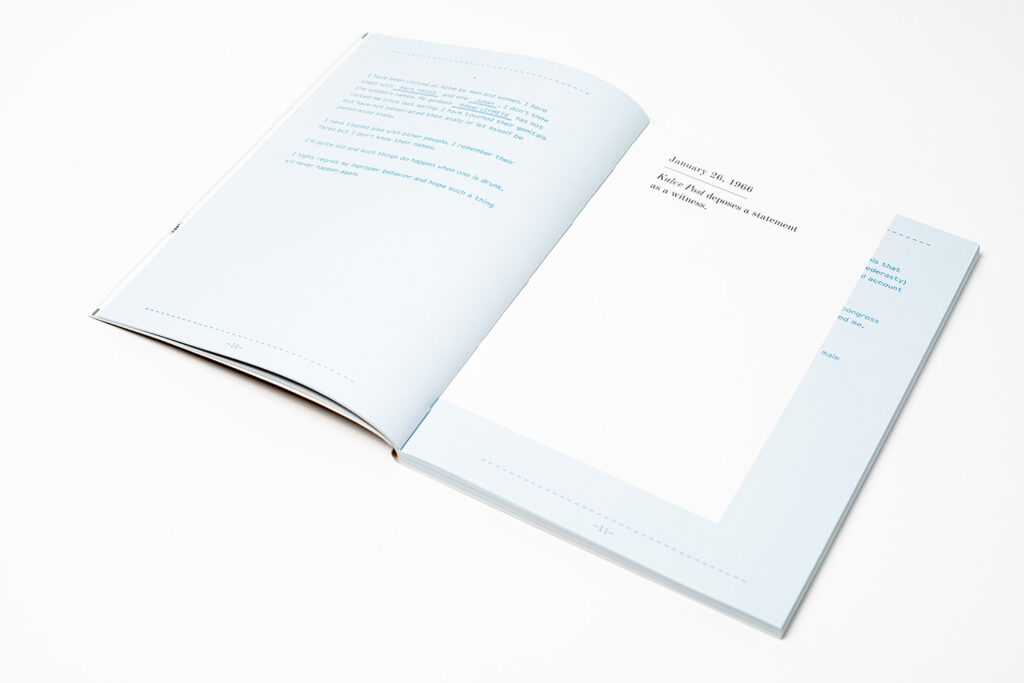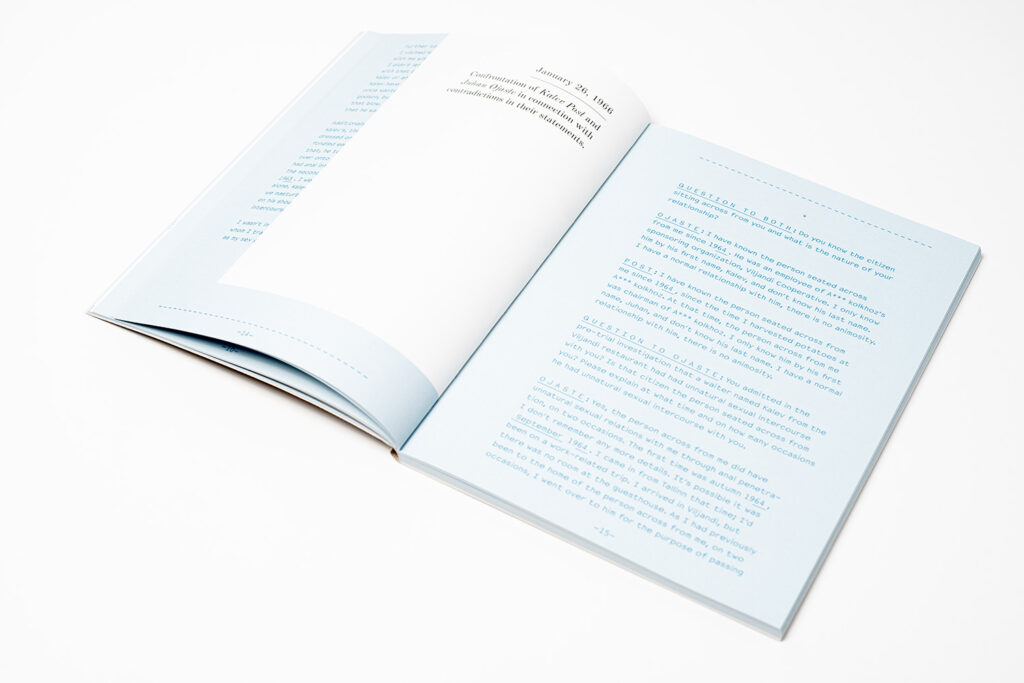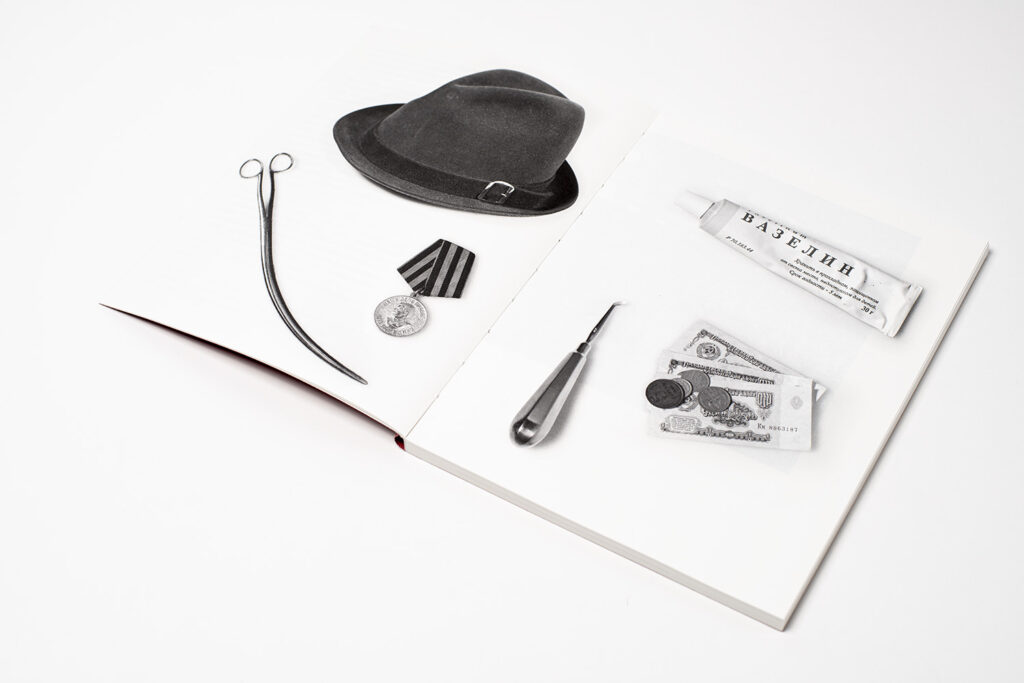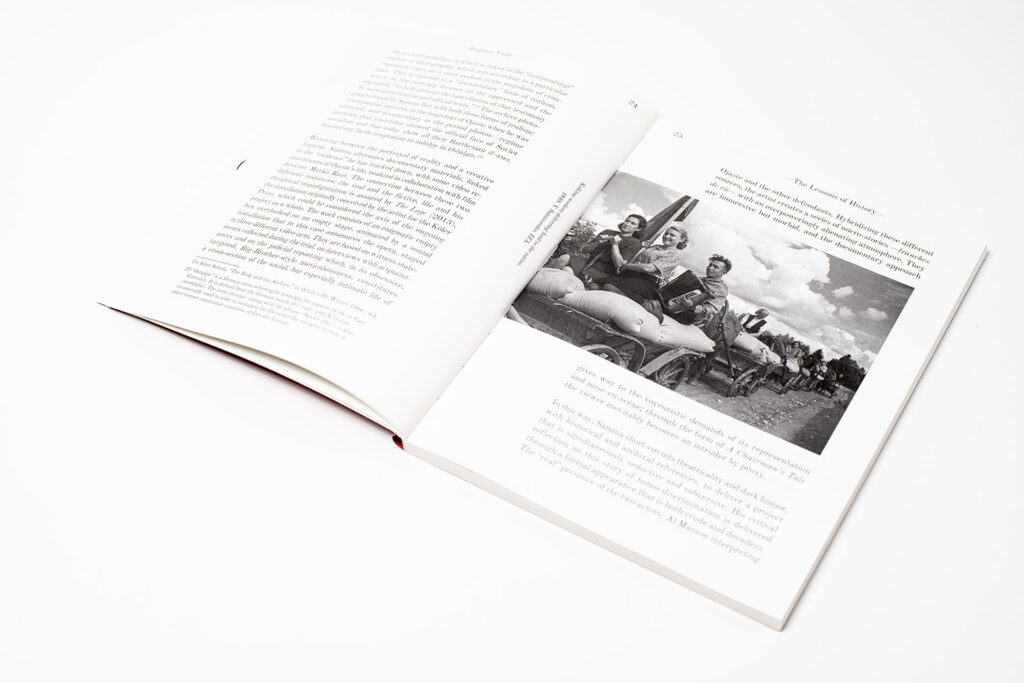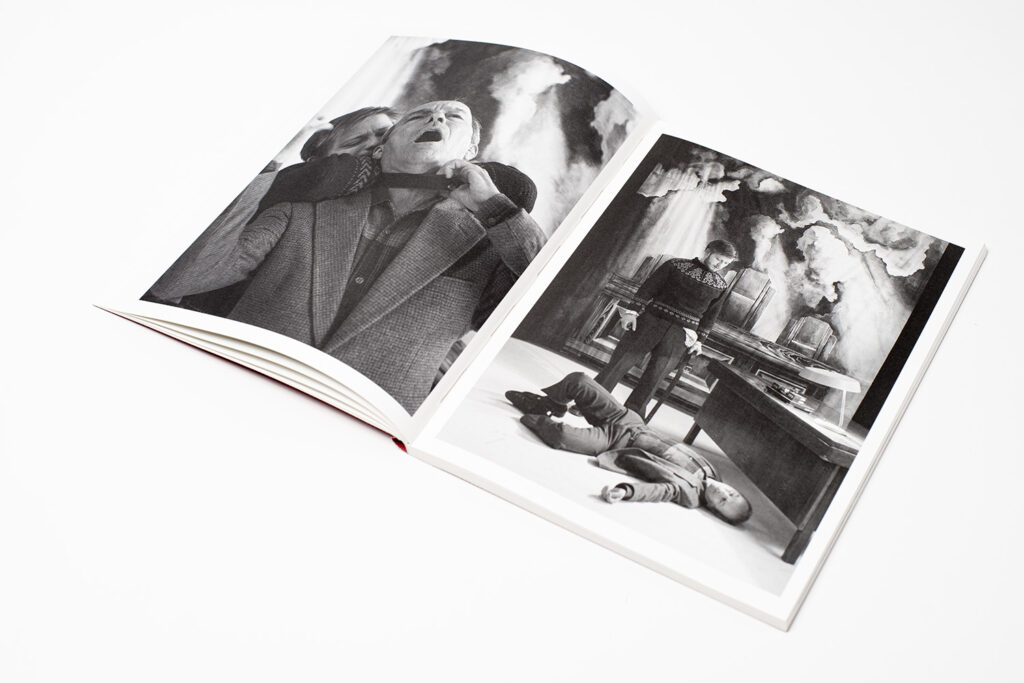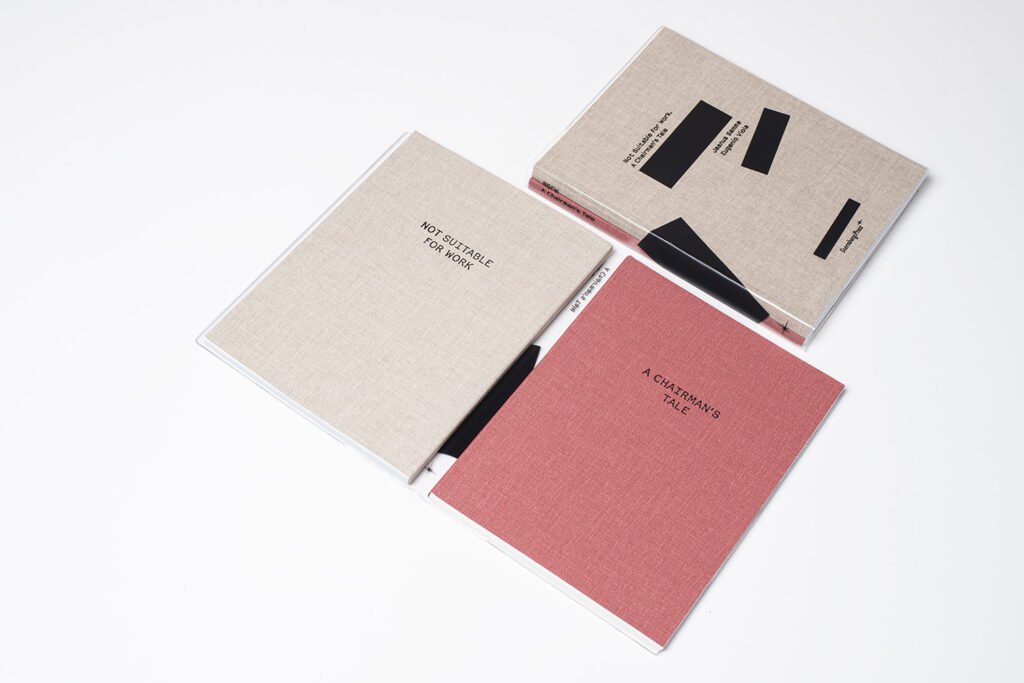
Jaanus Samma’s exhibition “Not Suitable for Work. A Chairman’s Tale,” conceived for the Estonian Pavilion at the Venice Biennale, tells the story of the former collective farm chairman Juhan Ojaste (1921–1990), a war hero and family man, who was declared “not suitable for work.” He was found guilty after being subjected to humiliating criminal trials in the 1960s for his involvement in homosexual acts in Soviet Estonia. He lost his job and was abandoned by his family. After spending a year and a half in a corrective labor camp, Ojaste moved to Tartu where he became a local legend, notorious for his active gay life. In 1990 a Russian soldier and male prostitute allegedly murdered Ojaste in his home.
This clothbound two-volume publication draws on political history in attempt to create counter-narratives that recognize the inclusion of suppressed histories, communities, and identities. Not Suitable for Work. A Chairman’s Tale is telling a story of discrimination against homosexuality, and raises questions about power, violence, persecution, and powerlessness of an individual in authoritarian political regimes that curtail human rights.
An essay by Eugenio Viola offers different perspectives on social restriction issues and the LGBT community’s “problem” in eastern Europe. Kevin Moss writes about male homosexuality in the Soviet Union from the end of the nineteenth century to the present. Maarja Kangro composed an aria based on the chairman’s police file, and Slava Mogutin tells his own story of homophobic persecution and his eventual exile from Russia in 1995. Rebeka Põldsam and Riikka Taavetti discuss LGBT histories in Baltic region.
